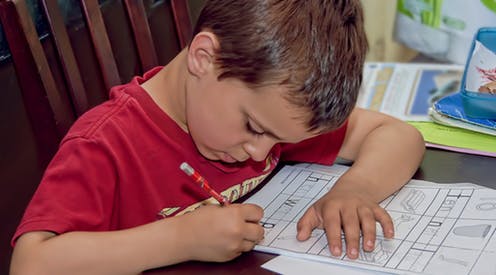Story time – by Ramona Cîmpean and Maria Kovacs

The situation created by the shut down of schools and imposed social distancing because of the COVID-19 pandemic found us in the middle of the Inclusion means learning for all project, as we were developing the activity called “Let us read together with our children”. Our initial plan was to help parents get used to reading aloud, for pleasure, with their children. We wanted to do this by organizing meetings with the parents at the school, at the library or at the Information and Documentation Centre in the school, by mediating some beautifully illustrated books for children, with short texts, by giving them ideas on how to interact with the children based upon the stories or book themes.
Towards the end of March, when it became apparent that this crisis situation will not pass quickly, and considering the questions parents were asking us (such as “What are we to do with the children all day long?”), we have decided to pick up again the meetings with parents. Not face to face, but in a way that would help us compensate for the lack of books and library access. We, like everybody else, took to online means of communication – Whatsapp or messenger groups made with the help of coordinators from partner schools. That’s how Story Time came into being. Every day, from the 30th March to 30th April, at 11.00 a.m., we send a story and a set of challenges to 15 groups of over 130 parents, reaching 150 children.
We have made short recordings – videos in which we read the stories and show the pictures. Our solution keeps the focus of “meetings” on the same beautiful books and combines IT solutions to bring the stories into their homes. These videos are sent to the parents, who watch them with their children. The videos are complemented by a few fun activity ideas for the families, for various ages. We call them “Challenge of the day”. The challenge of the day represents a set of tasks for which children need help from those around them, siblings, parents, grandparents. Why do they need them? Every story encourages reflection on the child’s behavior, on their experiences in various contexts and introspection on their life, their relations in the family and community.
This way, parents and children have the opportunity to chat, to talk, to debate, to look for information, to ask extended family members or neighbors, to share their own answers and solutions to the situations proposed. For instance, the proposed question after hearing the story Zog (by Julia Donaldson and Axel Scheffler, Editura Litera, 2020) was: “What would you like to change in your school if you were principal for a week?” Or, after the families listened to “Ten Rules of the Birthday Wish” (by Beth Ferry and Tom Lichtenheld, Editura Litera, 2020), they had to estimate the necessary budget for a child’s birthday party.
Moreover, some challenges encourage families to tinker, to make simple kitchen experiments or to create something beautiful together – a picture or a post card, a different ending to the story they had listened to, a different story with similar characters or situations. For instance, after listening to “Grandma Baba’s Busy Night!” (by Wakiko Sato, Editura Cartea Copiilor, 2018), parents and children were invited to create a card for grandma, while chatting about things that sometimes keep us busy because we believe that we need to do those things to reach a goal – only to learn that those very things take us further away from the initial goal.
All these challenges take family interactions to various fields, such as zoology and botany, geography, history and more. Parents post snapshots from family activities, reactions to challenges, as well as feedback to what other families share.
Story time is aimed at parents from the following middle schools: from Dragu (Sălaj county), Sânpaul (Cluj county), Hotar (Bihor county), Budacu de Sus (Bistrița-Năsăud county), Alțîna și Moșna (Sibiu county), partner schools of NHF in the project Inclusion means learning for all.
This project is co-financed from the Program for Education, Scholarships, Apprenticeships and Youth Entrepreneurship in Romania, financed by the EEA Grants 2014-2021 Inclusion means learning for everyone – Working together for an inclusive Europe.
European Economic Area and Norwegian Grants (EEA) represent the contribution of Iceland, Liechtenstein and Norway in reducing social and economic disparities in the European Economic Area and in consolidating bilateral relations with the 15 beneficiary states from Eastern and Southern Europe and the Baltic states.
